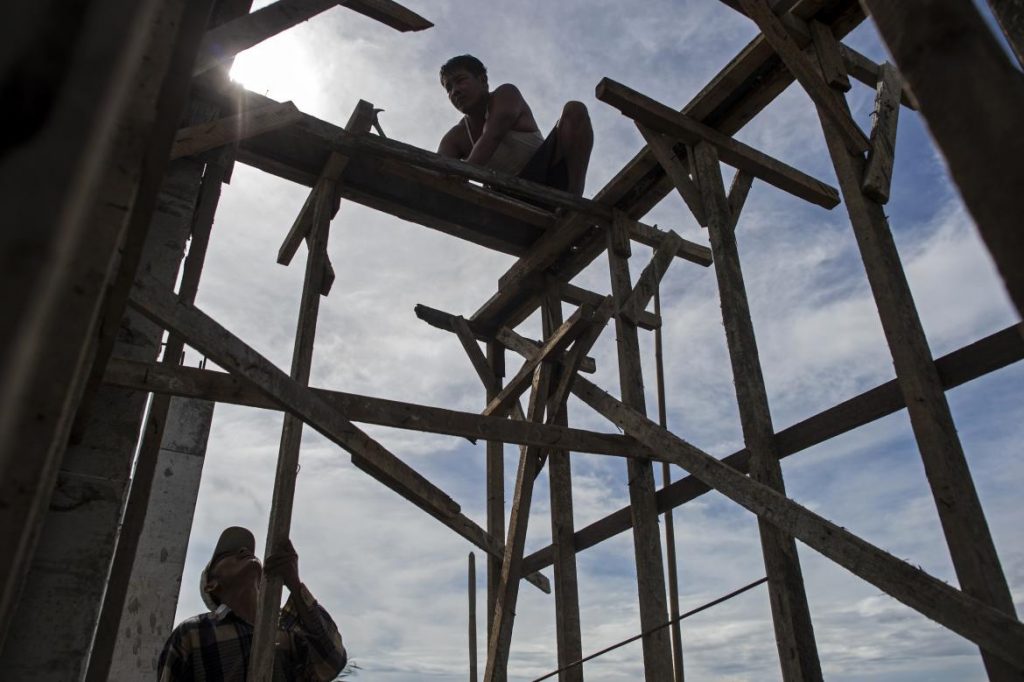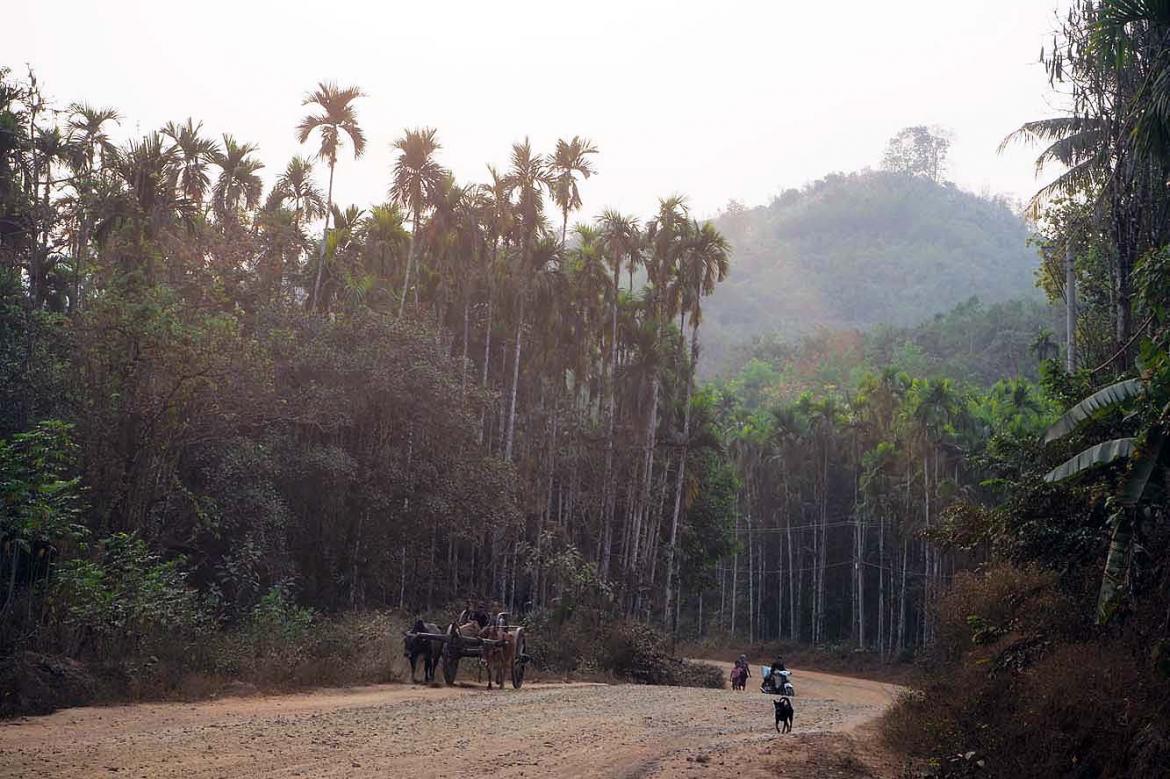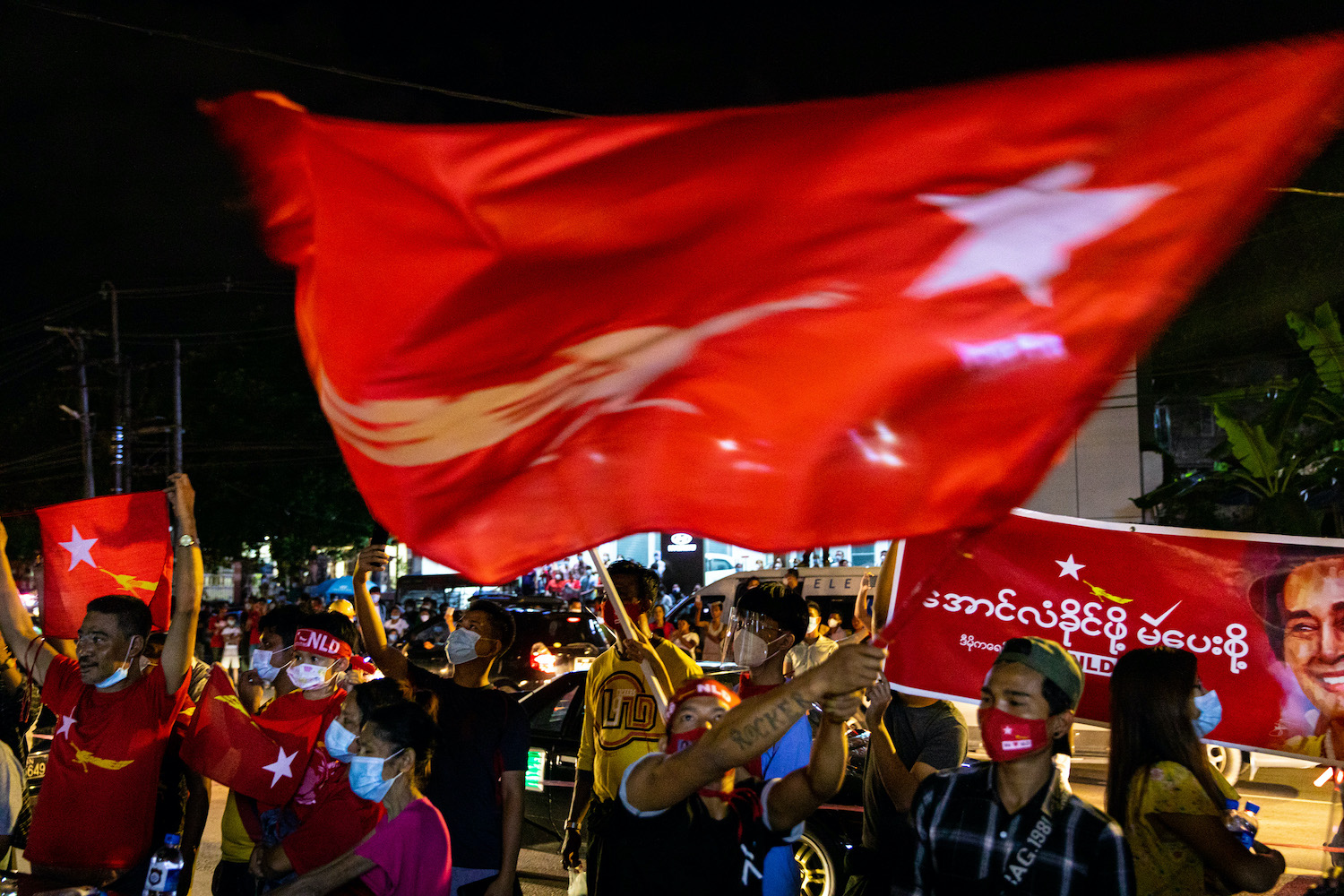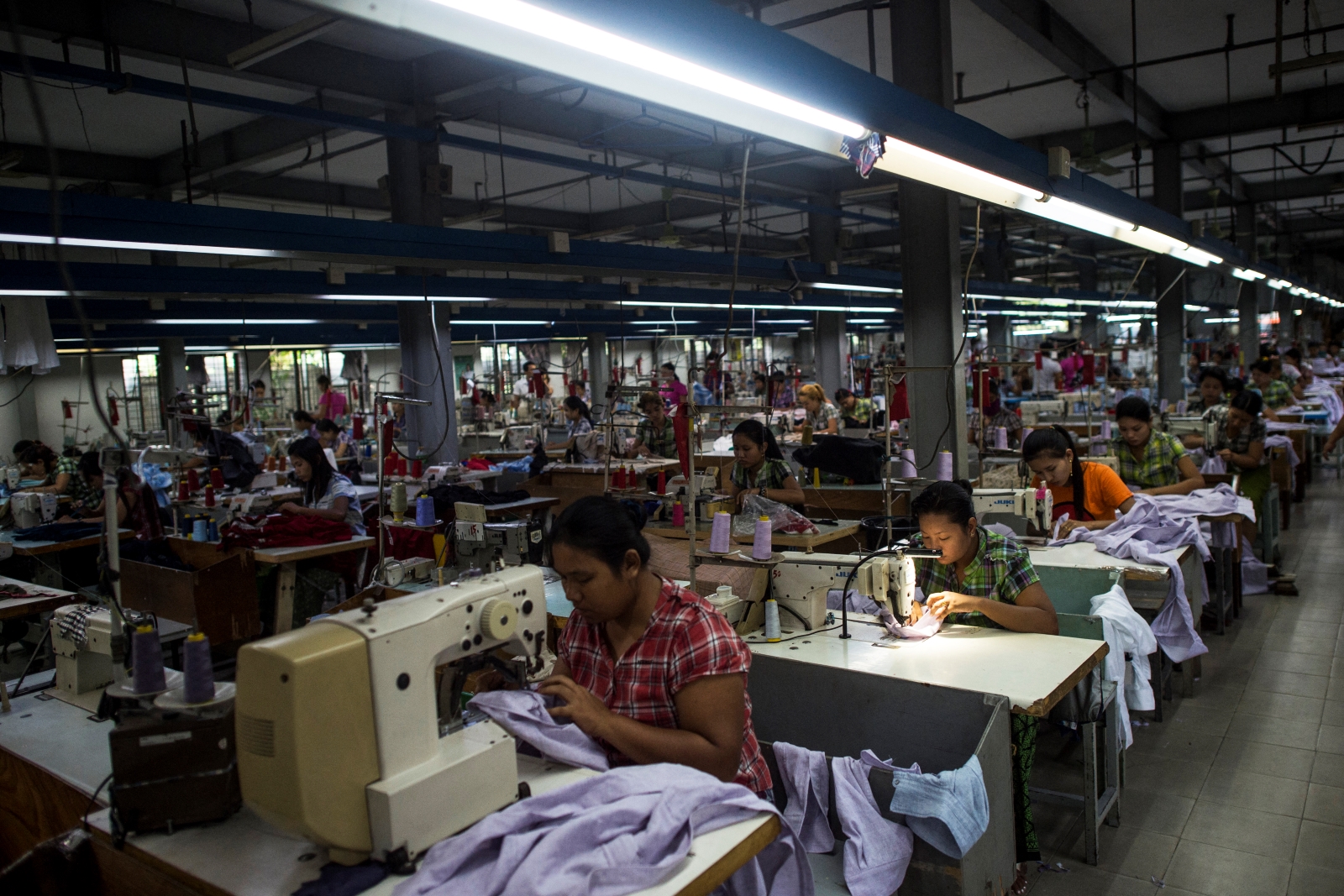By THOMAS KEAN | FRONTIER
The government has stabilised the economy after a “sugar rush” of spending during the final years of the U Thein Sein administration that threatened to push the country to bankruptcy, an economic adviser says.
Mr Sean Turnell, a special economic consultant to State Counsellor Daw Aung San Suu Kyi, said the National League for Democracy government had inherited a parlous fiscal position that saw inflation hit as high as 16 percent in October 2015.
“Wasteful” increases in government spending pushed the budget deficit to 4.5 percent of GDP and were funded through the printing of money, which caused higher inflation.
“Essentially if we look from about 2014 onwards what we see is a dramatic pumping of money into the economy,” he said at a seminar, “Myanmar’s Economy 2017: Taming Dragons, Finding Tigers”, held at Yangon’s Novotel Hotel this evening.
Support more independent journalism like this. Sign up to be a Frontier member.
“I think the country was heading towards bankruptcy,” said Turnell, who is also research director at the Myanmar Development Institute.
While acknowledging that the government needed to do more to encourage growth, Turnell said that Myanmar’s present GDP growth of 6.9 percent put it in the top five countries globally.
The government had also pegged back the deficit for 2016-17 from an anticipated 4.8 percent to 2.5 percent through cuts to recurrent spending.
“That’s the sort of result that in America … they would be rejoicing in the street about quite frankly. But it passed almost unnoticed,” he said. “To the extent it was reported, it was ‘government misses spending targets’.
The government had reduced spending further so far in the 2017-18 financial year. “That won’t stay like that but is very much a signifier of intent of what the government is trying to do in terms of getting back in control of the budget.”
While this has delivered macroeconomic stability, at a micro level it has sometimes been felt as a worsening of the economy, he said.
“If you pull sugar out of the system … [people are] not going to be happy even if in the long run it might be better for them.”
Turnell said the government had introduced a number of important financial sector reforms in recent months but not been good at communicating them.
One was the recent decision to restrict how the budget deficit can be financed. From 2020, recurrent spending can no longer be covered through simply printing money; instead, the government will have to sell bonds – and, importantly, pay market interest rates of interest on them.
The government has also recently introduced new prudential regulations for private banks, including stricter capital requirements and liquidity ratios.
Turnell’s presentation focused mostly on the macroeconomic picture and reforms to the financial and banking sectors, providing little detail on other areas of the economy.
However, he acknowledged that the government needed to go much further to encourage growth.
While it had delivered a “necessary set of conditions for Myanmar’s economy to grow … it’s not sufficient. There are other things that need to be done.”
He highlighted the need to cut bureaucracy and increase investment in infrastructure.
“The biggest thing they need to do is just lift the huge thicket of regulations that have encased businesses here for 50 years. There’s been some progress but there needs to be more – just lifting off restrictions that hamper business in Myanmar.”
An associate professor in the Department of Economics at Sydney’s Macquarie University, Turnell is also the author of Fiery Dragons: Banks, Moneylenders and Microfinance in Burma, which was published in 2009.
The NLD government initially came in for strong criticism from the business community for failing to prioritise the economy, but over the past year the economy has become an increasing focus for Aung San Suu Kyi’s administration.
Speaking at an economic forum in Nay Pyi Taw in June, Minister for Planning and Finance U Kyaw Win used the analogy of an aircraft on a runway to explain that the economy was set for take-off.
While that might not have happened yet, the picture appears to be improving. After economic growth slowed during the government’s first year – from 7.3 percent in 2015-16 to 6.3 percent in 2016-17, according to the International Monetary Fund – it is expected to pick up again this year. The IMF has forecast expansion of 7.3 percent.
Contracted foreign investment has also increased in 2017-18, with media reports indicating more than US$3 billion had been approved by the Myanmar Investment Commission in the first four months of the fiscal year, well ahead of the government’s $6 billion target.
Meanwhile, inflation has declined under the NLD government and is expected to moderate to between 6 and 7 percent in 2017-18.
To support growth, the government has pushed forward with a number of important economic reforms initiated by its predecessor. In April, it enacted regulations to bring a new investment law into effect, streamlining application processes and establishing a new regime of incentives based on geography and sector.
The same month the government dramatically reduced restrictions on foreign activity in a range of sectors, including midstream and downstream energy, retail and healthcare.
In July, the government submitted a draft companies law to parliament to replace existing legislation from 1914. The new law will enable foreign investors to take a minority stake in Myanmar companies, streamline reporting requirements for small firms while strengthening governance for larger ones, and enable entrepreneurs to register businesses online.







